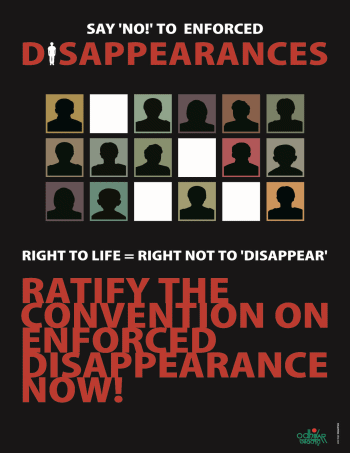On 10th October 2012 Odhikar marks its 18th anniversary. The day also happens to be the International Day against the Death Penalty1. As a human rights organisation Odhikar has been campaigning for justice and fair trial; and against the death penalty since its inception.
Established against the backdrop of the fall of the military dictatorship and restoration of democracy; Odhikar became a powerful network of human rights defenders in Bangladesh and earned its reputation as the unwavering watchdog of the people’s right to liberty, justice and participatory governance. Odhikar’s core commitments to uphold human rights and the rule of law; and to ensure people’s rights against discrimination, exploitation and impunity remain as relevant today as they were on the day of its initiation. Odhikar’s struggle started in 1994 and continues unabated. Needless to say, the condition under which the organisation is operating today is more challenging than eighteen years ago with the State becoming increasingly repressive.
In Bangladesh, the space for freedom and enjoyment of rights has seen a steady decline despite the changes in the forms of government. A series of anti-people, rights-curtailing black laws continue to remain in operation while new ones are introduced on grounds of national security and combatting terrorism. In the name of law enforcement, a plethora of forces have been raised that have little regard for the rule of law and due process, two cardinal principles of democratic governance.
Through its principled position in upholding fundamental rights of all people, over the years, Odhikar has broadened its organisational activities through networking in South Asia as well as at the Asian level.
Internationally too, Odhikar is involved in a number of campaigns; such as the campaign for a moratorium against the death penalty; against torture; for international justice and the ICC; monitoring elections as a part of its democracy programme; ratification of international human rights instruments; for protocols and implementing legislations; and campaigns for human rights defenders.
At home, Odhikar’s main priority areas have been monitoring the human rights situation and freedoms in Bangladesh; gender rights and violence against women; press and media freedom; rights of people along the border areas; anti-terrorism measures; discrimination; and campaigns for victims of torture. Odhikar also monitors the progress in realizing the commitments of Bangladesh made before the UN Human Rights Council in Geneva.
Odhikar attaches huge importance to documenting violations. With an increase in violations of rights both – in numbers and variation, Odhikar now documents 23 different types of violations including extrajudicial killings, torture and rape by law enforcement agencies; enforced disappearance; deaths in custody; trial and deaths of BDR jawans; death penalty; freedom of expression; the situation of the Chittagong Hill Tracts; rights violations on Indo-Bangladesh border; religious and ethnic minority rights; political violence; acid violence; dowry related violence; sexual harassment; workers rights; arrests and abuse of the Criminal Procedure Code; national security laws; prison situation; and election violence monitoring.
Odhikar regularly publishes its monitoring reports on violations of rights in its monthly bulletins and other reports. To address urgent situations, Odhikar issues ‘Urgent Appeals’ either on its own or in collaboration with international partners.
After 18 years of ceaseless effort to improve the human rights situation in Bangladesh, Odhikar has gained trustworthiness and visibility, both nationally and globally. The national human rights situation still remains precarious, which makes Odhikar even more determined and committed to continue its struggle for the establishment of the rights of the people of Bangladesh. The Organisation operates under threat and in grim conditions and non-cooperation of the authorities.
For Odhikar, struggle has to be constantly waged until basic rights and fundamental freedoms for all are ensured.




